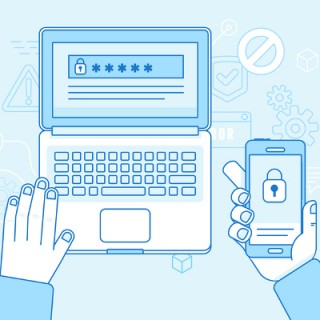Most modern businesses rely on specific technology solutions to ensure operations can work as intended. This includes servers for data storage, networks for data distribution, and workstations for employee productivity. Of course, you have to wonder if this is wise; after all, what happens when this technology fails?
Infradapt Blog
Hackers are notorious for committing cybercrimes and exploiting what seems like everybody and anybody. Yet, just as there exists honor among thieves, there’s an unwritten rule within the hacking community: leave hospitals alone.
Of course, if you’re familiar with the activity of hackers, then you’ve perhaps heard of stories of hospitals and healthcare institutions getting hacked. To be sure, any organization handling healthcare records makes for a tempting target to a hacker. These records contain very personal and sensitive information that can be sold for big bucks on the black market (this is one reason why protection laws such as HIPAA are put into place). However, if a hacker chooses to act on this impulse, they do so at the risk of being shunned by their own.
While it’s one thing to stealthily steal files from a hospital server unit, it’s even more of a dastardly deed for a hacker to unleash a ransomware attack on a hospital network. This is due to the fact that attacks like ransomware will disable a computer until a ransom is paid to the hackers. As you can imagine, if a hospital were to have any of its equipment taken offline, then patients in critical condition would be unable to receive the care they need until the system is back online. Potentially, a move like this could result in death.
What could motivate a hacker to attempt a hack where human life is on the line? For the hacker attempting such a hack, it’s perhaps because the crisis it creates makes for a higher chance of a payout. Compared to hacking a business that’s prepared for a ransomware attack and can afford to brush it off and lose a few hours or a few days-worth of data (depending on when the last backup was made), hospitals must act as quickly as possible to get their system back online, which very well could mean paying the hacker.
What’s worse, even if a hospital pays a hacker’s ransom, there’s still no guarantee that they will regain control of their system, which could translate to a significant loss of life. Given the possibility of such a sad situation, it’s easy to see why hackers will blacklist any of their peers known for going after hospitals. After all, where do the hackers go when they get sick? That’s right, the hospital.
To give you a hacker’s perspective on the matter, ZDNet references a forum where hackers discuss, get this, the ethics of hacking. “Yes, this is pretty sad and a new low. These ransom attacks are bad enough, but if someone were to die or be injured because of this it is just plain wrong.”
While these words may be somewhat comforting for a hospital administrator to hear, keep in mind that there are some hackers who disregard any form of ethics altogether, so the risk is still there. Also, for the average SMB not associated with healthcare, there’s likely no “hacker’s code” protecting your organization from being targeted. In fact, regarding the typical SMB, hackers can build a pretty solid case on why they should pull the trigger on a hack attack.
Therefore, whether your business is in the crosshairs of hackers or not, every organization needs to be prepared and have a security solution in place that can withstand such attacks. This defense plan must include a way to defend against even ransomware, which means backing up your data with BDR and having a means to restore your backed up copy as quickly as possible so that downtime is at a minimum.
To make sure that your business is prepared for anything that a hacker throws at you, call Infradapt today at 800.394.2301.
Of all the potential causes for a deficit within the office environment, the physical office itself isn’t likely to first come to mind. Even so, the value of establishing certain practical design and organization strategies have shown to improve employee morale, collaboration, and productivity. While these solutions may not be for every office, if your company is experiencing hindrances in productivity, these tactics may be beneficial implementations to incorporate within your business.
Passwords are important for any online account (and for most accounts in general). Sometimes they might feel like inconveniences, but it’s crucial to remember that these passwords are often the first line of defense, if not the only line of defense, that stands between your data and hackers. We’ll discuss ways that you can augment password security with other powerful measures.
First, some background: Pebble made the announcement on its Kickstarter page that “due to various factors,” the company “could no longer operate as an independent entity” and had “made the tough decision to shut down the company” after Fitbit completed the purchase of some of Pebble’s assets. The company went on to disclose that they would no longer be continuing any hardware operations, ceasing the production of their wearable products.
As for the devices that had already been sold, Pebble advised their customers that their devices “will work normally for now.” However, since what remains of the company will no longer release software updates, the devices will quickly become vulnerable to malicious threats until they gradually become totally obsolete. These devices are also no longer eligible to be returned or exchanged, leaving their users stuck with a device with a considerably-shortened shelf life, and with no financial recompense.
In short, it’s clear that out of all parties affected by this buyout, it’s the users who are left with the short end of the stick; stuck with insecure electronic devices that they may have contributed a significant financial investment towards, and without warranty.
While this transaction will likely have little effect on a business, it’s worth considering the ramifications of tech companies engaging in similar deals.
For example, let’s say your workplace is exclusively equipped with desktop solutions from Company A. One day, it’s suddenly announced that Company B has come in and bought Company A, and is ending support for Company A’s products. As a result, your office is now filled with unsupported devices that will become obsolete much quicker than anticipated, with an increased susceptibility to security threats after support has ended. Sure, you could update your workstations, but it would be costly to receive customized support.
If you want to be protected against the whims of the tech industry, give Infradapt a call at 800.394.2301. We can keep your systems maintained with a managed services solution, and an eye on the industry to help you roll a bit better with the punches.




